Journalism in the revolutionary cause in our country
Under the skillful leadership of President Ho Chi Minh and successive generations of Party leaders, the revolutionary press of Vietnam has consistently affirmed its role as a vanguard force, a sharp spearhead in the struggle for national independence, national construction, and defense. From its early days with the mission of awakening patriotism and the will for independence, to the Doi Moi (Renovation) period with the task of combating corruption, the press has continuously developed, accompanying the great historical turning points of the nation.
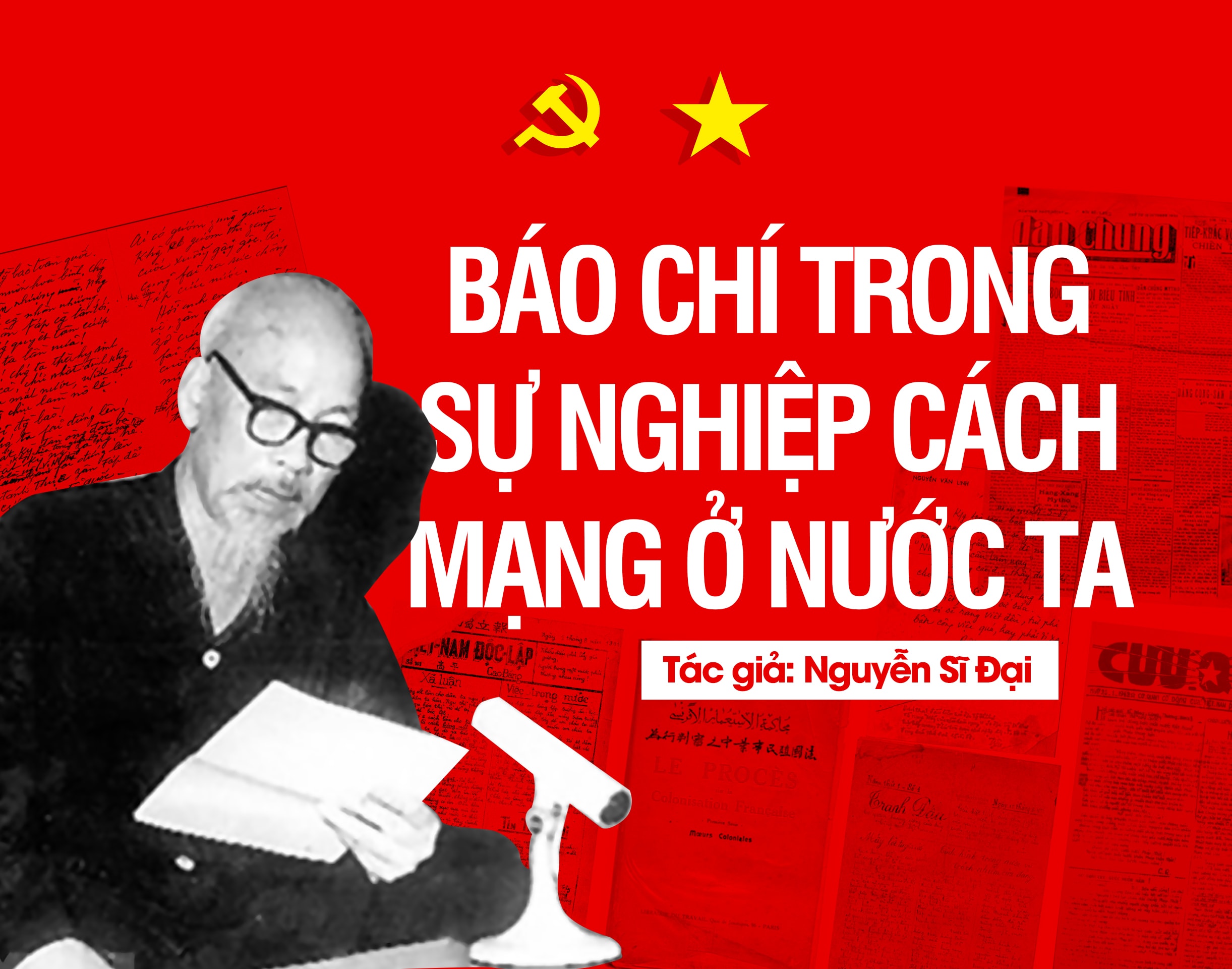
Publication date: May 25, 2025 - Technical support: Diep Thanh
Under the skillful leadership of President Ho Chi Minh and successive generations of Party leaders, the revolutionary press of Vietnam has consistently affirmed its role as a vanguard force, a sharp spearhead in the struggle for national independence, national construction, and defense. From its early days with the mission of awakening patriotism and the will for independence, to the Doi Moi (Renovation) period with the task of combating corruption, the press has continuously developed, accompanying the great historical turning points of the nation.
.png)
President Ho Chi Minh was a great teacher, the founder and foundational figure of revolutionary Vietnamese journalism. Even while working abroad, he used his pen as a sharp weapon, stirring up a powerful wave of patriotism among the people. His work "The Indictment of the French Colonial Regime" and hundreds of other articles by Nguyen Ai Quoc not only exposed the brutal nature of colonialism but also ignited the spirit of national independence in our people. These were pioneering flames that significantly contributed to the collapse of the colonial regime in Vietnam.
After seizing power, thousands of articles by Uncle Ho continued to serve as a guiding principle for the resistance and national reconstruction movements. Works such as "Call to Arms for National Resistance" (1946), "Call to Arms Against America to Save the Nation" (1967), and "Raising Revolutionary Morality, Eradicating Individualism" (1969) were not only declarations of action but also heroic anthems that inspired the strength of national unity.
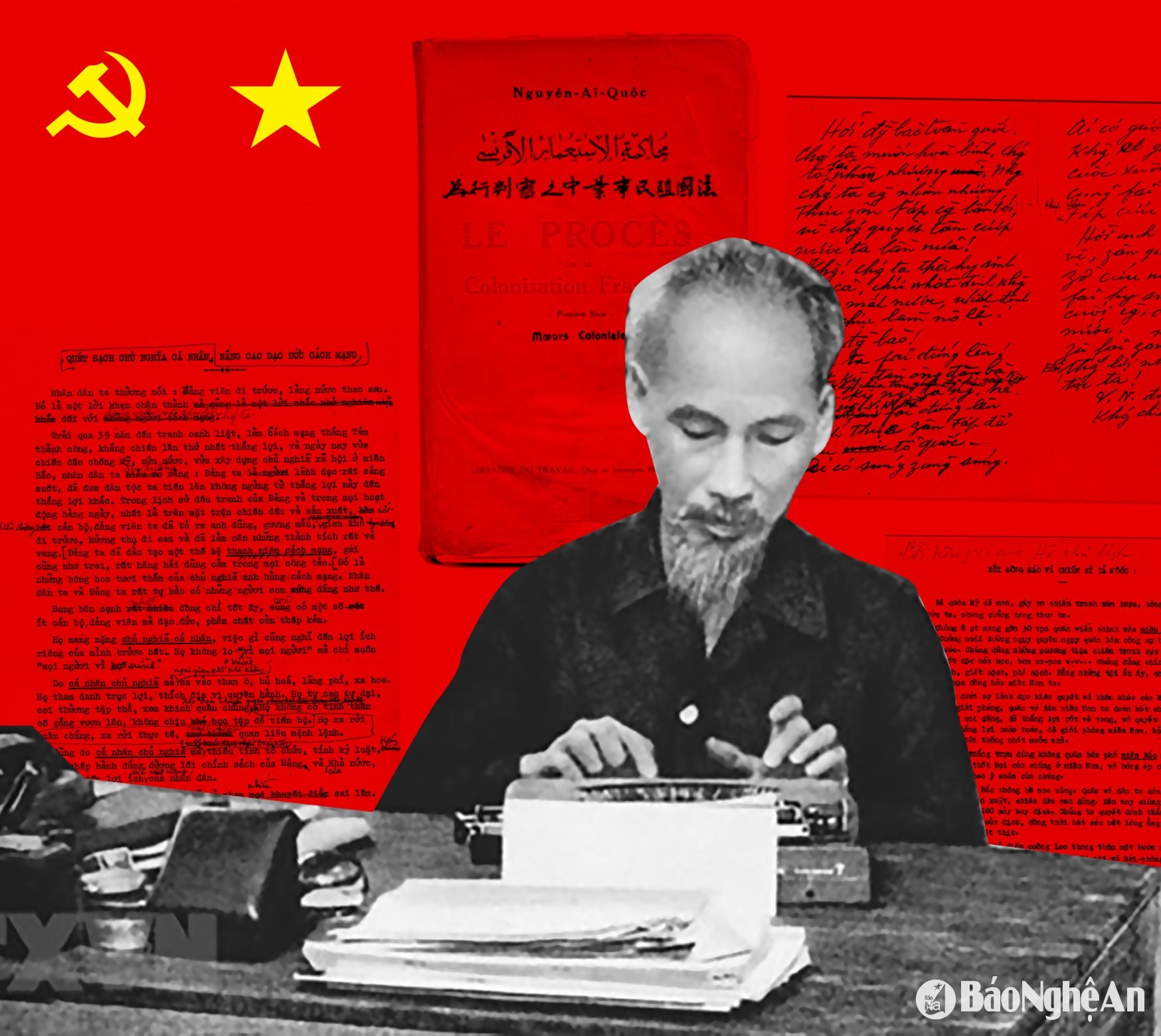
Alongside President Ho Chi Minh, many generations of Party leaders, especially the General Secretaries, have made immense contributions to the development of revolutionary journalism. Comrade Tran Phu, the first General Secretary of the Party, quickly recognized the strategic role of journalism in the revolutionary struggle. During his short tenure, he founded the first newspapers such as Co Do (Red Flag), Tranh Dau (Struggle), and Tap Chi Cong San (Communist Magazine), and also established the Party's Propaganda Department – the precursor to later ideological work. His great contributions and sacrifice at such a young age have left a deep sense of loss and served as an inspiration for generations of revolutionary journalists.
As Secretary of the Overseas Command of the Indochinese Communist Party, Comrade Le Hong Phong founded the Bolshevik Magazine – the first official theoretical organ of the Central Committee of the Party, thereby contributing to the training of cadres, strengthening international relations, and spreading revolutionary ideas. Later, Comrade Ha Huy Tap, with journalistic experience from the Soviet Union and France, upon assuming the position of General Secretary, publicly published newspapers such as L'Avant garde (The Vanguard), Le Peuple (1937), and Dan Chung (The People) (1938), for the first time bringing the voice of the Party closer to the masses through a legal and public form, contributing to a strong wave of struggle in society.
.jpg)
Continuing that tradition, Comrade Trường Chinh directly oversaw the Liberation Flag newspaper from 1942 and later the National Salvation Newspaper of the Viet Minh Front – publications that had a profound influence during the pre-insurrection and resistance periods. In particular, his article "The Japanese and French are fighting each other and our actions" provided timely guidance for action, contributing to the advancement of the revolutionary movement and clearly demonstrating the ideological leadership role of the press.
During the Doi Moi (Renovation) period, General Secretary Nguyen Van Linh left a profound mark with his series of articles "Things That Need to Be Done Immediately," published in the Nhan Dan newspaper from 1987 to 1990. These courageous and direct articles not only exposed negative phenomena and corruption within the system but also affirmed the pioneering role of revolutionary journalism in defending justice and strengthening the people's trust in the renovation cause led by the Party.
.png)
Building upon those solid foundations, the press continued to assert its decisive role in various historical periods. The 8th Central Committee Conference (May 1941), chaired by President Ho Chi Minh, issued important directives on the press, outlining a strategic direction: "At this time, propaganda books and newspapers should not use the Party's name too much; instead, they should use the name of the Viet Minh and other national salvation organizations."
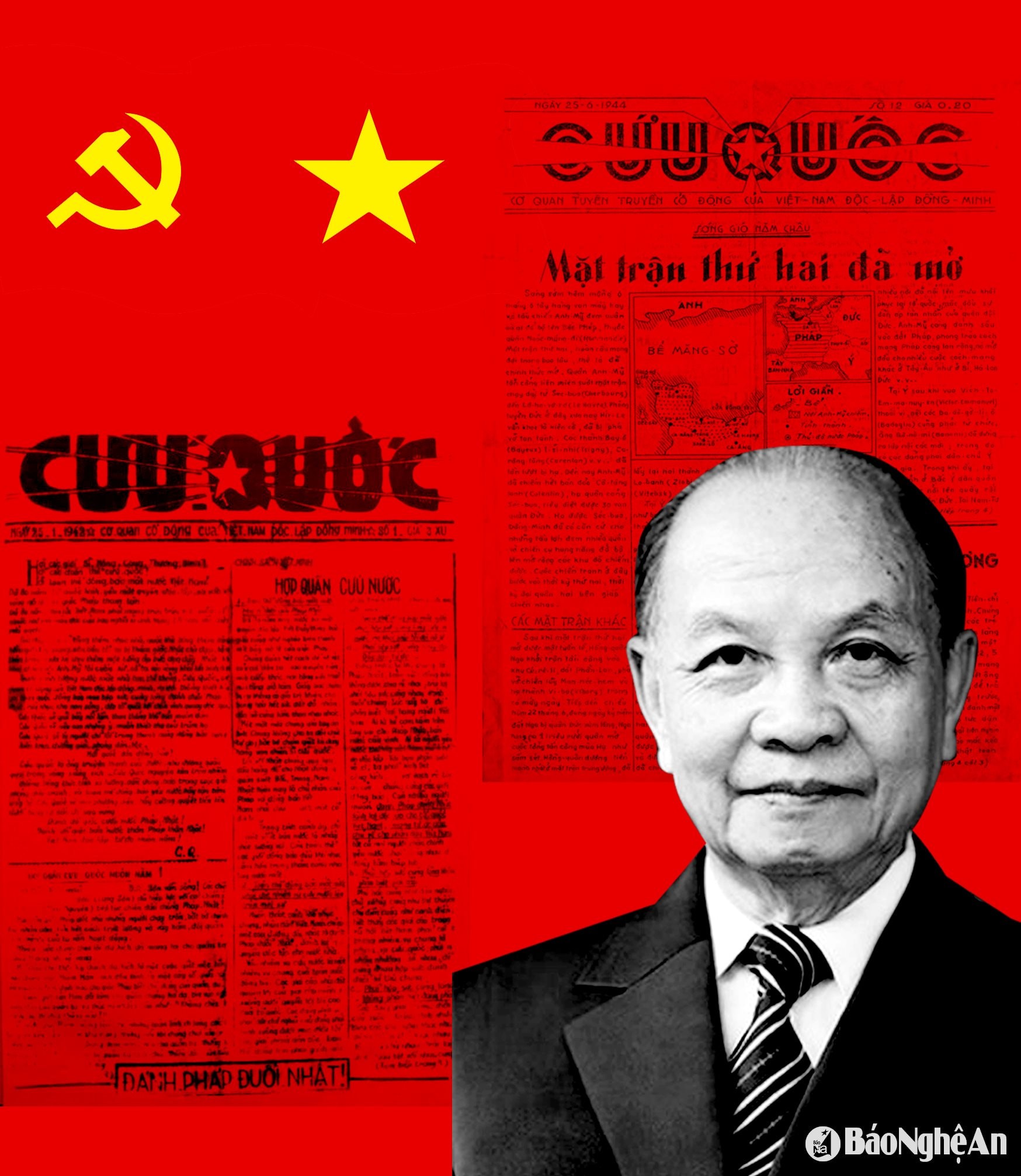
This insightful directive led to the founding of the newspaper Cuu Quoc (January 25, 1942) – the mouthpiece of the Viet Minh, with its first issue headed by Comrade Truong Chinh. The front-page appeal, in a stirring tone, read: “Cuu Quoc will reveal the suffering and misery of the people… will be a loyal guide for our compatriots to advance on the path of national liberation.” At this time, the press not only reflected the reality of the revolution, but also encouraged, guided, and aroused the strength of the entire people, truly becoming a fighting force.
In 1951, the Nhan Dan newspaper was founded, inheriting the spirit of previous newspapers.revolutionary newspaperIts predecessors included Thanh Nien, Su That, Co Giai Phong… newspapers quickly became the Party's main voice, where President Ho Chi Minh wrote over 1,200 articles and many prominent writers such as Hoang Tung, Thep Moi, Huu Tho, Ha Dang… were associated with it for life. Based on the practical experience of the "three together" with the farmers of Dai Phong Cooperative, journalist Ha Dang wrote the article "Three Times Catching Up with the Middle Peasants" (January 9, 1961). Just two days later, President Ho Chi Minh published the article "A Model Cooperative" in Nhan Dan, creating a widespread emulation movement throughout the North to catch up with and surpass Dai Phong.
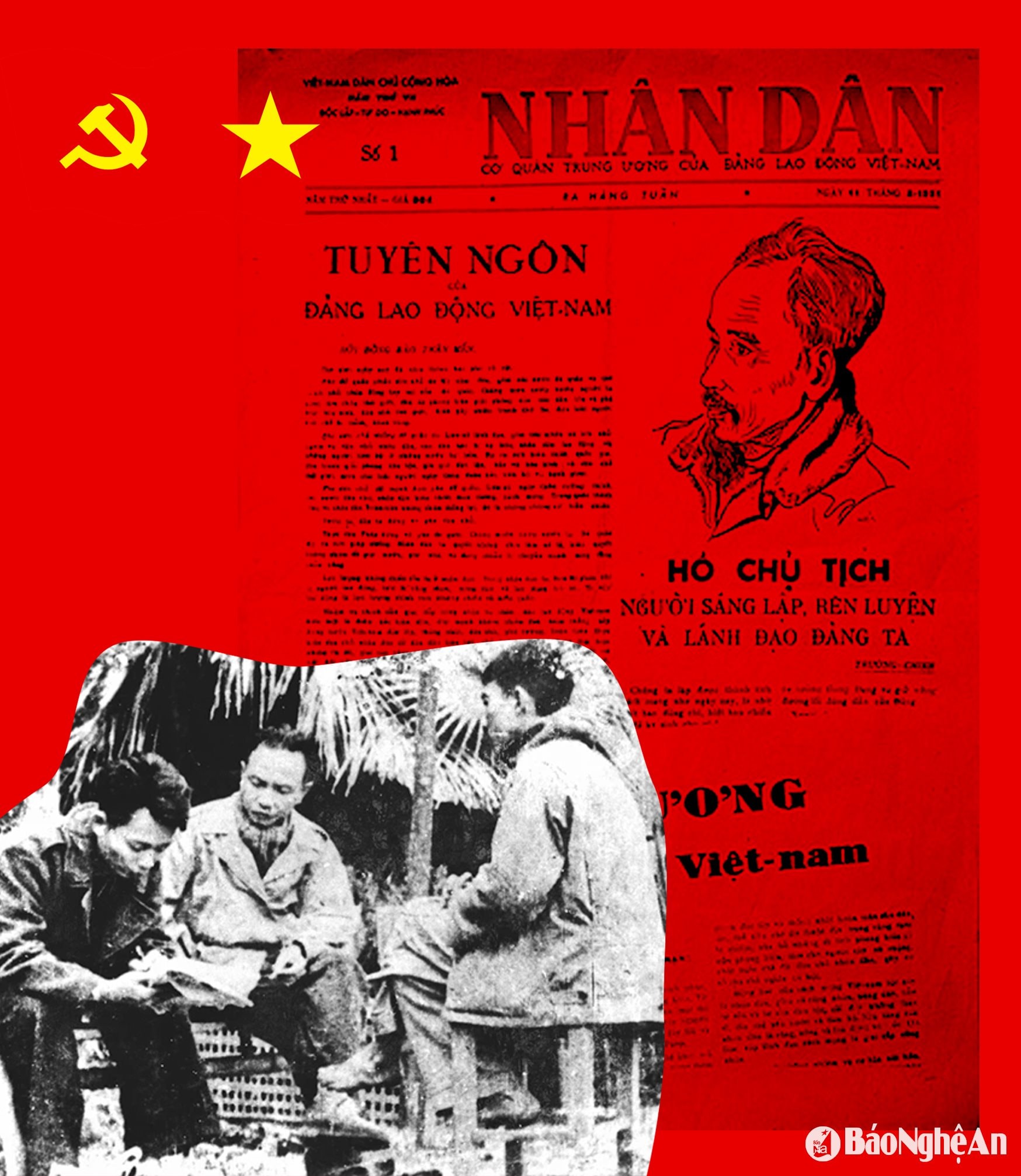
During the resistance war against the US, the press continued to be a flame that kept faith alive. On December 26, 1972, amidst the days when Hanoi was being bombed by B52s, Thép Mới wrote an editorial titled "Hanoi, the capital of human dignity," affirming: "Houses may collapse, but there is one thing that cannot collapse, and that is human beings."
And on March 5, 1979, amidst the country facing the threat of invasion from the North, Hoang Tung's editorial "The whole nation fights the enemy, the entire population is a soldier" resonated like a call to arms from a thousand years of history, igniting the spirit that "every tree and blade of grass wants to rush forward to fight the enemy."
.png)
During the Doi Moi (Renovation) period, the role of the press became even more crucial. On the eve of the 6th Party Congress (1986), the press promptly reflected on the inadequacies of the system, discovered and highlighted the innovative ideas of the people at the grassroots level, contributing to the Party and State's formulation of important reform policies such as Contract 100 (1981) and Contract 10 (1988) in agriculture, or Decision 217 (1987) increasing autonomy in industry and commerce. Prominent journalists like Hong Ha, Ha Dang, Huu Tho, Thai Duy… played an active role in shaping public opinion and contributing to the promotion of management reforms.
Although there are no officially designated "forbidden zones," in reality, there are still "sensitive areas" that few dare to touch – especially high-ranking leaders. However, the People's Army Newspaper, under the leadership of Editor-in-Chief Tran Cong Man, bravely paved the way by publishing the article "The Truth About Comrade To Duy's Housing" (July 22, 1987, author Tran Dinh Ba), creating the first breakthrough in the fight against corruption and promoting multi-faceted reporting in the press.
Subsequently, during a meeting with 100 artists and intellectuals on October 6-7, 1987, General Secretary Nguyen Van Linh emphasized: "You should not bend your pens. It is better to go into reality to gain more understanding before writing, rather than writing in a way that is opportunistic..."
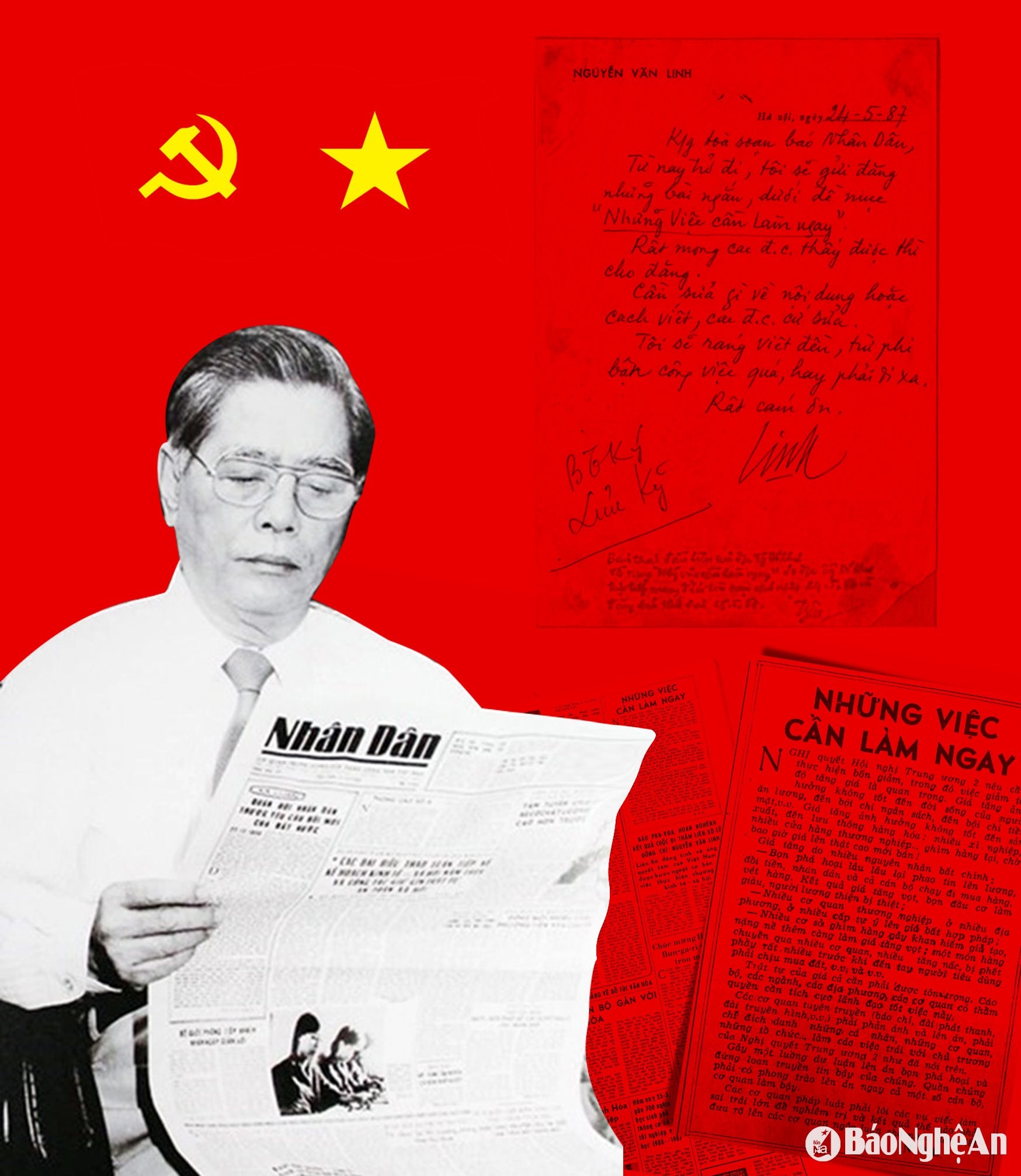
From those foundations, journalism stepped in.period of reformPowerful in both content and form, the theoretical articles, thematic seminars, series of articles such as "Things That Need to Be Done Immediately" in Nhan Dan Newspaper, along with numerous articles reflecting social negativity and injustice appearing frequently in Van Nghe, Lao Dong, Tien Phong, and Tuoi Tre newspapers, touched the hearts of readers and became a banner of encouragement for the Renovation period. Many journalistic works created a great stir and shocked public opinion at that time: The Story of the Tire King (Tran Huy Quang, Van Nghe, 1986); The Woman Kneeling (Tran Khac - also known as Le Van Ba, Van Nghe, December 7, 1987); That Night… What Kind of Night Was That? (Phung Gia Loc, Van Nghe, March 21, 1988); The Procedure for Being a Living Person (Minh Chuyen, Van Nghe, May 19, 1988); The Confession of a Defendant (Tran Huy Quang, Van Nghe, December 1988).
On television, VTV commentator Nguyen Truong Phuoc emerged as an honest and upright voice. It can be said that the press during the Doi Moi (Renovation) period contributed to raising social awareness, helping people understand their rights, and boldly fighting against injustice and corruption. In the context of the country's transformation, the press is not only a voice of criticism but also a driving force for reform and development.




